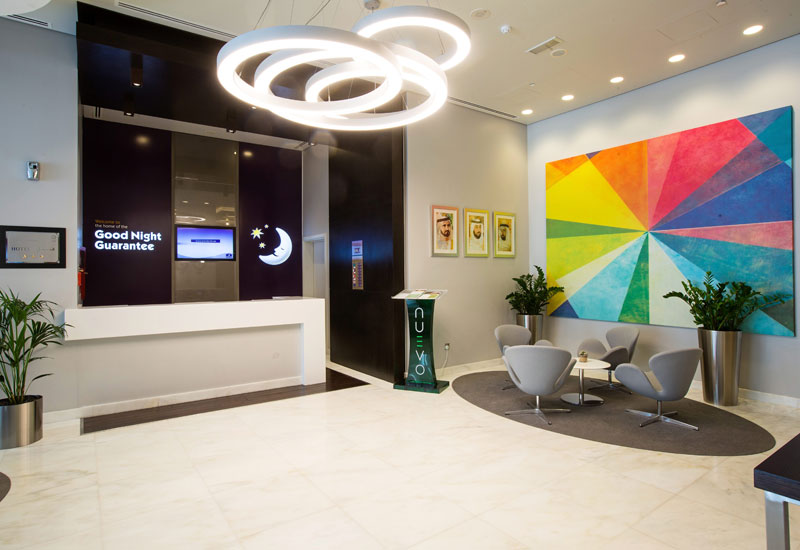 "Outdated and low quality hotel management software generally offer limited features; not all of those features that you critically require," says eZee Technosys CEO Aeijaz Sodawala.
"Outdated and low quality hotel management software generally offer limited features; not all of those features that you critically require," says eZee Technosys CEO Aeijaz Sodawala.
Why must hoteliers invest in up-to-date hotel management software?
AMIT SHARDA: Information technology continues to advance at a lightning speed, yet a lot of hotels have not invested in, or updated their hotel management software and they still use property management systems which are not integrated with electronic distribution systems. Instead of deploying various disparate systems to accomplish multiple tasks, hoteliers should always use systems that are tightly integrated.
FRANK MARTIN: Most outdated hotel management software comes with a technical and financial burden. Often old software is high maintenance, stealing hoteliers’ time and resources. Modern software is affordable and accessible from any device inside and outside a hotel. By using the latest technology, hoteliers free themselves of the technical burden from previous systems and can use the free time and resources to work on online marketing and online presence, in order to increase direct bookings, improve their hotel’s image online and offline and ultimately increase revenue.
AEIJAZ SODAWALA: In a nutshell, they have to keep pace with changing times. The hospitality IT industry is growing exponentially. Be it hotel operations, sales, booking, travelling, guest experience; everything is highly influenced by technology. Hoteliers who do not take advantage of high performing software might simply struggle to survive the competition. To manage day-to-day operations in less time, you must invest in a decent property management system. An initial investment in this kind of technology subsequently brings you quick revenue and you can focus on your business management.
PRAVEEN PAUL: All software products are bound by a finite lifecycle which then classifies the product as outdated. Hotel management software is no different and typically has a three-year lifecycle. Due to the constant evolution of how we use and interact with software and the transition from desktop to mobile devices, it is imperative that hospitality management software (HMS) also evolves to support this functionality. All properties position guest satisfaction levels as a benchmark in regards to how well they are performing. Much more is demanded from the HMS primarily through presentation of data via mobile guest applications, which permit direct guest access to hotel facilities both in-house and away from the property. Further integration with social media platforms and mainstream ratings websites are also critical to achieving a high level of guest satisfaction. Thus, using an outdated HMS that only supports yesterday’s norms and does not stay relevant to current trends almost surely results in poor guest satisfaction.
What are the pitfalls of using outdated or low quality hotel management software?
AMIT: One of the biggest pitfalls of outdated hotel management software is unnecessary loss of revenue. Single image inventory at your PMS, assisting you to feed availability and rates to all the electronic distribution channels; such as your online web booking engine, various OTA channels, and the like, can earn you revenue that you may have otherwise lost.
FRANK: Outdated software requires expensive equipment, constant maintenance and updates and has complicated technical aspects that hoteliers are not prepared to handle. Additionally, as systems have outdated managerial logics, it means training hotel staff usually takes longer and some new features do not exist, so that’s wasted time. On top of that, most outdated solutions don’t offer remote 24/7 customer support or even charge for that service. This limits hotel operations and is a big problem as hoteliers can’t solve problems immediately.
AEIJAZ: Apart from dealing with poor performance, you lack efficiency and optimisation too with any outdated hotel software. Outdated and low quality hotel management software generally offer limited features; not all of those features that you critically require. They are prone to data leakage and security vulnerabilities too. You will have to invest more in backup, because loss or corruption of data can prove to be catastrophic. While using outdated software, malfunctions and crashes are major risks to live with. But the biggest problem is that your old software would not integrate with other software or modern programmes. Even if it does, the interface will be unpleasant. Investment will be required in maintaining it, and you will lose competitiveness and the benefit that new technology can bring you. A poor performing booking engine would fail to capture some potential bookers. In the end, this results in loss of productivity, a gridlock in achieving the high performance and revenue that you could have achieved with a better performing software.
PRAVEEN: The HMS is directly responsible for the guest experience at the property. Due to constantly evolving technology and the software lifecycle it is critical for properties to keep software up-to-date. Low quality HMS does not empower the user to provide the best possible personalised experience to the guest. For example, in the front office, a critical benchmark is how quickly it is possible to check-in or check-out a guest with the least possible clicks. Another critical feature is the ability for the HMS to remember personal details about the guest thereby empowering the user to provide a more personal guest experience. In regards to driving revenue, further areas include two-way interaction with channel managers and subsequently OTA’s thereby driving up occupancy which achieves the best possible ARR. Only a high quality PMS takes these areas into consideration.

| Advertisement |









 Search our database of more than 2,700 industry companies
Search our database of more than 2,700 industry companies









